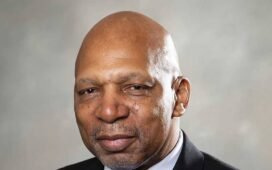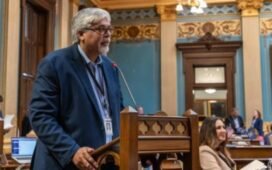Posted on: December 12, 2024, 08:23h.
Last updated on: December 12, 2024, 08:23h.
The SAFE Bet Act, introduced to Congress in September by House Rep. Paul Tonko (D-NY) and Sen. Richard Blumenthal (D-CT), is finally set for a hearing.

Next Tuesday, Dec. 17, the U.S. Senate Judiciary Committee will consider the bill that seeks to put a series of federal regulations on the legal sports betting industry to better protect consumers. The SAFE Bet Act, or Supporting Affordability and Fairness with Every Bet Act, a title Tonko, the lead author, seemingly labored over to conjure up a catchy title, is going before one of Congress’s most powerful and influential committees.
The Judiciary Committee, chaired by Sen. Dick Durbin (D-IL), has titled the discussion, “America’s High-Stakes Bet on Legalized Sports Gambling.” Blumenthal is among the 21 Judiciary members.
Safe Bet SAFE Bet Stalls
Tonko and Blumenthal say the rapid expansion of states legalizing gambling on sports has been a detriment to society. They believe federal intervention is needed.
The SAFE Bet Act proposes a series of regulations, including a ban on all sports betting television and streaming advertising between 8 a.m. and 10 p.m. and during all live sports programming. Certain marketing language like “risk-free bets” and deposit bonuses would be outlawed.
Sportsbooks would be barred from utilizing A.I. to tailor incentives and promotions to players, and affordability checks on players would become a norm. Bettors would be limited to no more than five deposits per 24 hours and credit cards would no longer be accepted for online wagering accounts.
Whether you’re scrolling on social media, driving down the highway past billboards, or listening to your favorite podcast or radio station, sports betting ads are there to prompt you with an endless cascade of flashy promotions,” Tonko said in September. “This relationship between the gambling industry and sports has reached intolerably dangerous levels. It’s well past time for Congress to step up and make a difference.”
Blumenthal said Congress isn’t trying to ban gambling but ban “practices that exploit and abuse people.”
The highly influential gaming lobby, led by the American Gaming Association in DC, says state lawmakers have already implemented consumer safeguards and sportsbooks have gone to great lengths to protect their customers. They’ve invested in responsible gaming tools and are committed to responsible play, the AGA claims.
“Six years into legal sports betting, introducing heavy-handed federal prohibitions is a slap in the face to state legislatures and gaming regulators who have dedicated countless time and resources to developing thoughtful frameworks unique to their jurisdictions, and have continued to iterate as their marketplaces evolve,” said Chris Cylke, the AGA’s senior VP of government relations.
Committee Oversight
The Judiciary Committee has broad legislative jurisdiction and has the primary role of serving as a forum for the public discussion of social and constitutional issues. In May 2018, the U.S. Supreme Court overturned PASPA — the Professional and Amateur Sports Protection Act — that had limited single-game sports betting to Nevada.
The landmark SCOTUS decision said PASPA violated anti-commandeering interpretations of the Tenth Amendment. The court said the U.S. government cannot compel states, or namely New Jersey in its lawsuit Christie/Murphy v. NCAA, et al., to not engage in an activity while simultaneously allowing another to do that very same thing.
SCOTUS ruled that PASPA forced New Jersey to go against its own self-interest. The court said if Congress wishes to regulate sports betting on the federal level, it can, but it cannot force some states to not do something that others can.
Congress can regulate sports gambling directly, but if it elects not to do so, each State is free to act on its own,” the court opinion read. “Our job is to interpret the law Congress has enacted and decide whether it is consistent with the Constitution. PASPA is not.”
Since the 2018 ruling, Congress has opted not to intervene. As a result, 39 states and Washington, D.C., have passed laws authorizing sports gambling.















